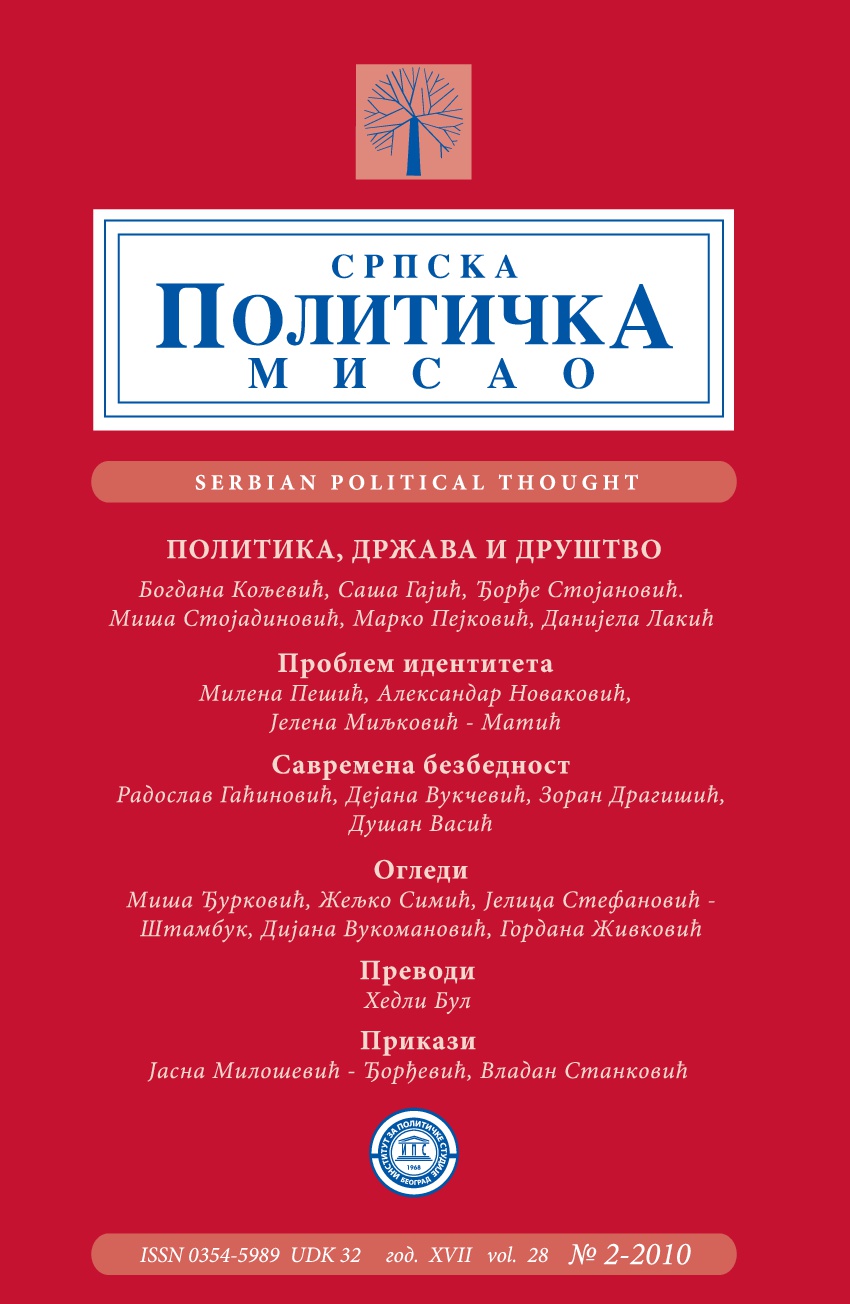Демократија и слобода Феноменолошки описи српске политичке збиље
Democracy and Freedom Phenomenological Descriptions of Serbian Political Reality –
Author(s): Gordana ŽivkovićSubject(s): Human Rights and Humanitarian Law, Political Philosophy, Civil Society, Government/Political systems, Phenomenology
Published by: Институт за политичке студије
Keywords: democracy; freedom; liberalism; totalitarianism; human rights; ideology; political manipulation; vassalage; non-government organizations;
Summary/Abstract: Central theme of research in this text is reflected in one issue on relation between democracy and freedom, which is an ancient issue and yet even nowadays so up- to- date and even a crucial one. The question is: Is there democracy without freedom? And also is there freedom without democracy? What has been experience of current civilization in that domain? Author of the text focused on liberal democracy and its opportunities regarding accomplishment of freedom of human being in modern world. On the basis of the author’s insight into the phenomenology of Serbian political reality it is concluded that accentuated calls on democratic values paradoxically enough have lead to “a lack” of human personal freedom. Precisely, an individual’s freedom stays limited in the domain of “defining of personal choice”, while in reality such choices are becoming more and more limited. Looking from this point of view it turns out that a famous thesis of Francis Fukuyama on coming of “the end of history” is a problematic one. The thesis is that liberal democracy, having achieved “a victory in the Cold war era”, has attained an absolute predominance in modern world environment – as a definitely established model of political organization and the way of life suitable for all states, by which the end of history has come to reality as well. However, many facts state a totally different state of affairs: the abovementioned ideologized and instrumentalised “announcement of the end” has totally omitted a fact that the main ideological war has been going on between liberalism and democracy. In the text the author “proved” on several comparative levels of argumentation a thesis that an intense war against democracy – whether it has been made undercover or openly – has been led by the people who have publicly declared themselves to be liberals. While making this point, the author paid attention to the role, significance and activity of so- called alternative non- government organizations asking a question regarding them: What exactly is their impact on creation of a “social environment” that favors liberation and development of democratic processes in our surrounding? While arguing that it is exactly the human rights, that have been so strongly insisted on, which are increasingly becoming a powerful political and ideological tool in politics, the author concluded that a real objective and purpose of each democratic order are a stable state, self- conscious people, free individual and a righteous and moral social community.
Journal: Српска политичка мисао
- Issue Year: 2010
- Issue No: 2
- Page Range: 363-381
- Page Count: 19
- Language: Serbian

